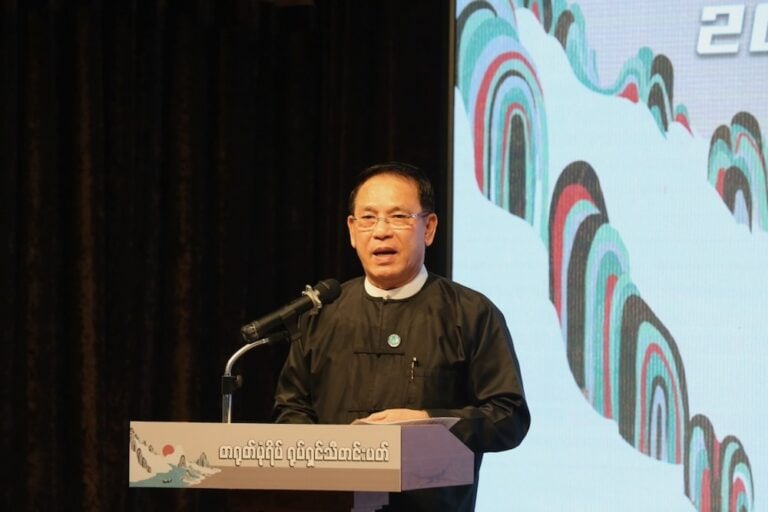(Mizzima/IFEX) – The Burmese regime has banned the work of 19 artists and writers, and some writers and poets are hiding from authorities because they are being pursued for taking part in the September 2007 uprising. Among those whose works have been banned is the renowned cartoonist Awpikye, whose three-decade-long career was brought to a […]
(Mizzima/IFEX) – The Burmese regime has banned the work of 19 artists and writers, and some writers and poets are hiding from authorities because they are being pursued for taking part in the September 2007 uprising.
Among those whose works have been banned is the renowned cartoonist Awpikye, whose three-decade-long career was brought to a halt by the ban. He was accused of supporting monks in the September 2007 uprising.
“I cannot draw cartoons now; I am upset about it. My fans cannot see my cartoons anymore,” he said. “I knew about it after the advertisement industry told me about the ban. They told to me that my work had been banned from being published and telecast. Moreover, even my colleagues cannot mention my name in their work. Their work will be censored, too, if they mention my name,” he added.
Award-winning actor and film director Kyaw Thu met the same fate. The regime banned about 20 films and videos in which he has acted, even though they were cleared by the censorship board. “The ban on screening my movies and videos means banning everyone involved in their production, too. It means killing the artistes,” Kyaw Thu said.
Both Awpikye and Kyaw Thu have found alternative means of earning an income and doing meaningful work, but both are frustrated and disheartened at being shut out of their real professions.
“Yes, I’m facing some difficulties now. But I’m doing graphic designing and drawing logos as well for commercial establishments. The ban doesn’t affect my commercial work”, said Awpikye.
“I can bear the burden of being banned from performing as I have my charity work of providing free funeral service for the poor. We are getting more donations now as I’m leading this charity organization. Many people encouraged us to continue our job”, said Kyaw Thu.
Others affected by the ban are: Than Myint Aung (female writer); Soe Win Nyein (artist); Oo Swe; Zaw Htet Htwe (sports journalist); Poe Phyu (film actor); Zarganar (comedian); Aung Way; Nyein Thit; Ludu Daw Amar (female writer); Dagon Tayar (writer); and Ko Moe Thu (writer).
In response to the ban, some writers have changed their pseudonyms. However, the censorship board – the “literary secret service” of the State Peace and Development Council (SPDC) – requires that the biographical information of writers accompany their work so changing pseudonyms does not work as a strategy to avoid the ban.
The censorship board tightens its rules on some artists, imposes restrictions, and sometimes blacklists writers who criticize the regime. Sources close to literary workers said that the censorship board always favours publishers close to the top brass, and who also publish pro-junta articles and news.
In a related incident, in a 4 December 2007 press conference held by SPDC in their new capital Naypyidaw on 4 December 2007, Information Minister Brigadier General Kyaw Hsan discredited Kyaw Thu, comedian and actor Zarganar, and writer Than Myint Aung as being “unpatriotic” for offering alms to monks during the uprising, and further claimed that “unscrupulous elements” had incited and misled them.
Meanwhile, Poet Nwe Sein Wai was taken from his home for questioning the day after he attended the 92nd birthday celebration of renowned writer Ludu Daw Ahmar on 29 November. At the event, poets recited their poems and distributed collections of their works.
“They took away my husband for questioning. He was released later on the same day. I don’t know what (the authorities) asked my husband. Only he can answer this,” his wife said.


